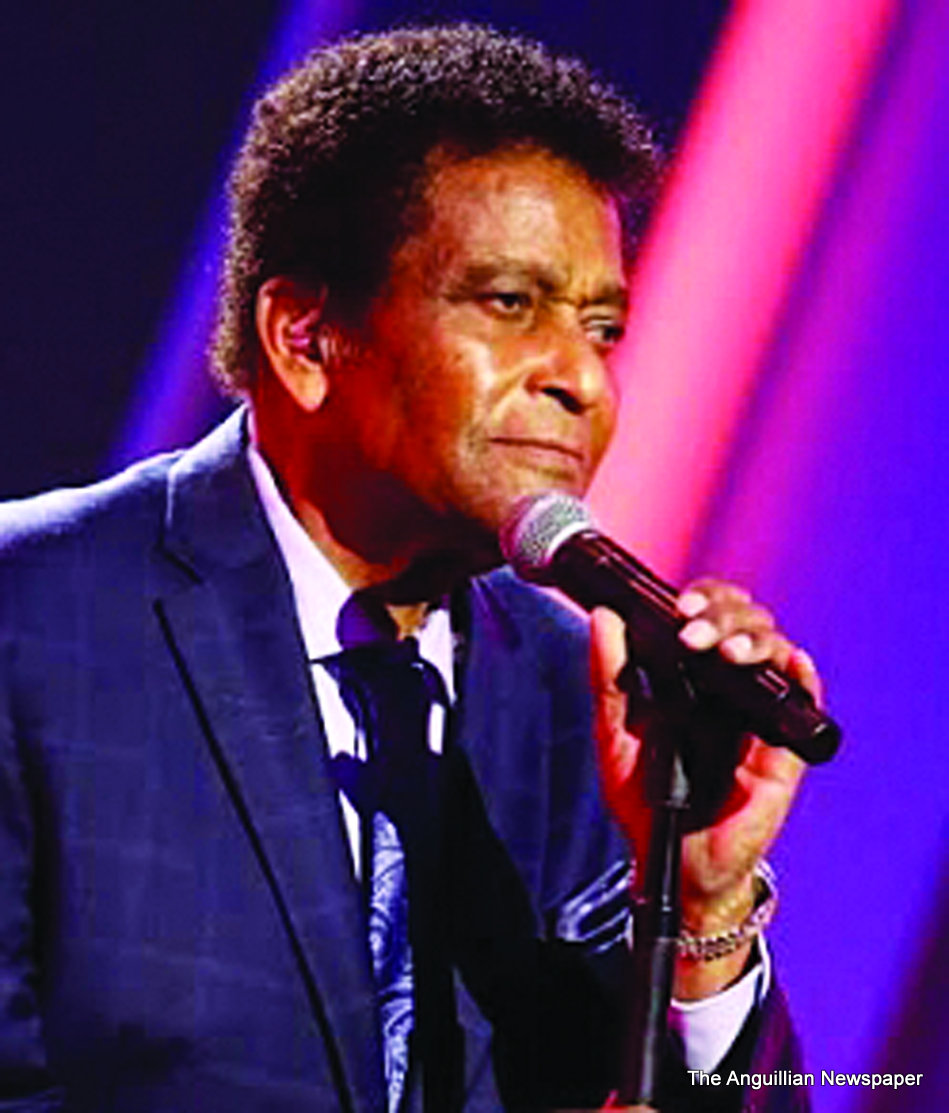
Charley Pride
Having grown up in an era when “Charley Pride” was a common name in many households of the Anguillian community, and having such great admiration for his unique, mellow vocal tones, it would be remiss of me not to place on record a tribute in memory of this great country icon upon the occasion of his passing. Charley Pride, by fate’s decree, died last Saturday, December 12th, in Texas, at the ripe age of 86, as a result of complications brought on by the corona virus.
My initial memories of this first black country music super star stretch all the way back to 1971. I came to be attracted to his captivating voice in one of the most austere of circumstances. As a fourteen-year-old, I had been a patient at Miami’s Variety Children’s Hospital where I had undergone orthopedic surgery to correct my ‘right bowleg’. It was there that, for several mornings, over my little transistor radio, I heard Charley singing his chart-bursting hit, “Kiss an Angel Good Morning”. Since then, the nostalgia brought on by that tune has caused me to reminisce the fond, yet uncomfortable, memories of my Variety Children’s Hospital experience.
Over the years, I have cherished the music of Charley Pride. It’s not so much for his secular hits, per se, but particularly with respect to his great gospel tunes, the likes of which are: “Take Time Out for Jesus”, “When You Left Your Room This Morning”, “Stay Between the White Lines”, and his popular Christmas hit, “A Three-Room Shack”. These tunes were aired regularly from the mid-seventies on the region’s famous gospel radio station, PJD2 in St. Maarten, which was later transferred and renamed Radio Paradise in St.Kitts.
I stand with those who celebrate the life and legacy of Charley Pride. What comes to mind is our Island Harbour community where country music is loved and revered among the residents of that tightly-knit village. There, fellow singers like Evan Webster and Terrance Webster, as well as Ken Webster and Ogees Webster, stand in solidarity with those who have admired Charlie Pride’s Country and Western talent throughout the many years of his prominence and fame.
According to PBS, Charley was born in Sledge, Mississippi, and grew up on the Mississippi Delta, the son of a sharecropper. He rose to stardom in the country music arena when he was introduced to producer cowboy Jack Clement in Nashville, Tennessee.
Charlie Pride was the first black member of the Grand Ole Opry since DeFord Bailey decades earlier; the first black artist to have a number one country record; and the first artist of any race to win the Country Music Association’s male vocalist award two years in a row. One of the most successful country singers ever, he went on to have 29 No. 1 country hits, 52 Top 10s, and twelve gold albums.
Charlie Pride’s music spans over a half century in the Country and Western genre. His is the kind of music that will vibrantly live on and transcend our times. I join in sympathy with all those who mourn his passing, and who hail his great an admirable musical aptitude.








